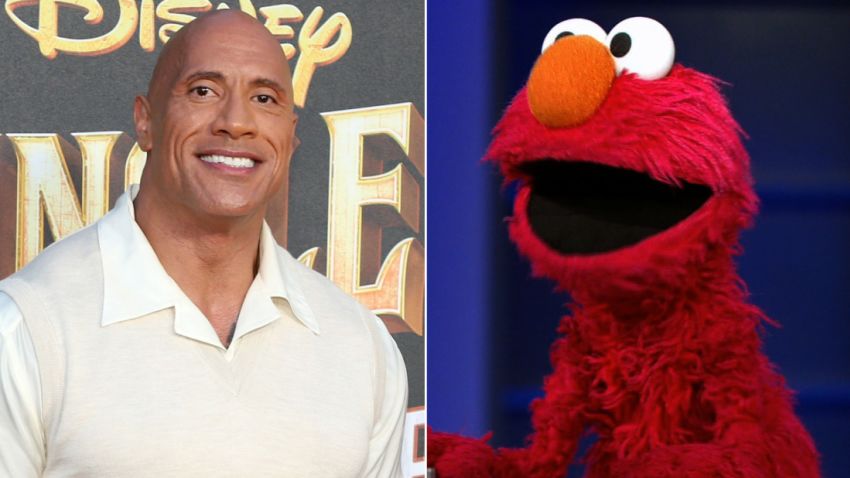When Joshua Gillespie was holed up in the hospital as a kid, where he stayed frequently in between surgeries for his rare heart condition, his best friend was a 3-and-a-half-year-old monster with red fur and a vibrant imagination.
Elmo, that lovable, occasionally grating Muppet and “Sesame Street” stalwart since 1984, kept Gillespie company for much of his early childhood from a TV inside his hospital room. He’d watch the same tapes – the “Best of Elmo” compilation, usually – so often that his nurses had chosen their own favorite parts.
Gillespie has loved the Muppets ever since he watched in awe as Elmo tap danced down a staircase like a regular Fred Astaire. So seeing the preschool-aged monster get his due among other adults who grew up with him – this time for his feud with a rock – has been extremely gratifying, he said.
“There’s so much attention being brought to these things, which is fantastic for me just to see … there’s a whole new generation of people to grow up with it,” he said.
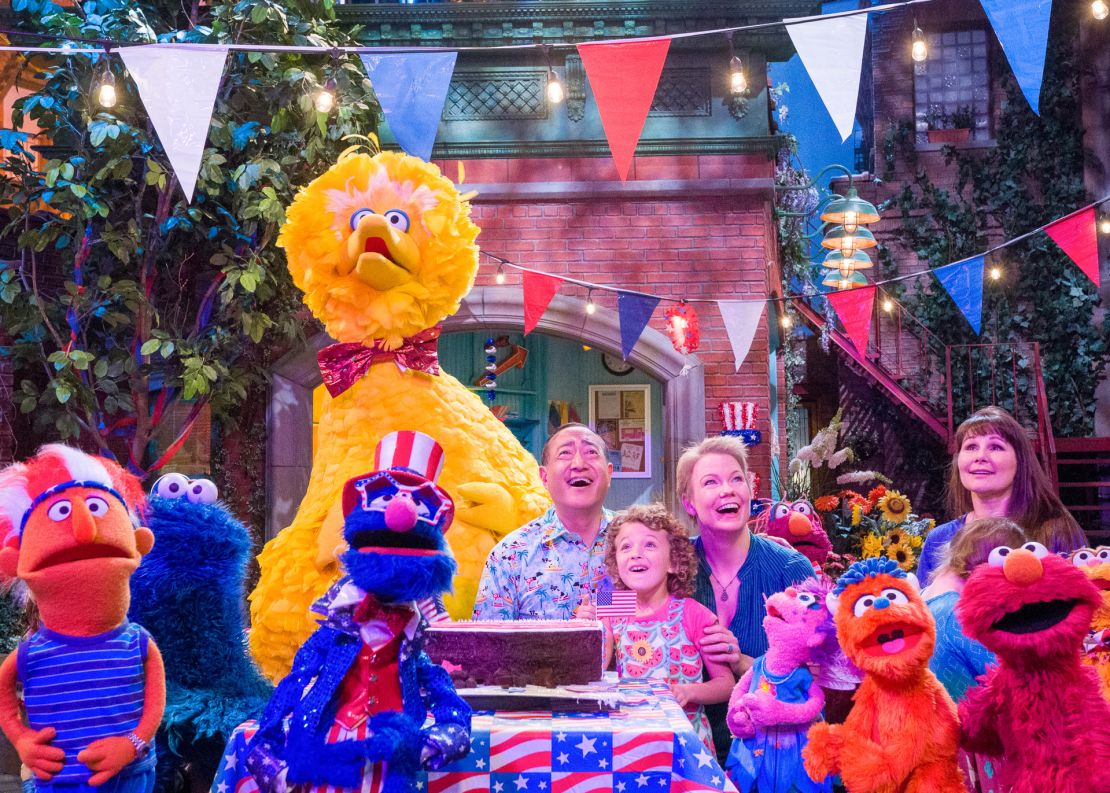
The Muppets have been in our lives for more than 50 years, and they’re still finding new ways to entertain us, even if it’s by accident (the Elmo v. Rocco feud had been going on for years on “Sesame Street,” but Twitter and TikTok rediscovered it earlier this month). There’s a revival of “Fraggle Rock” debuting this month, too, and Kermit, Fozzie and the gang have been riding the nostalgia wave to potentially host the Oscars – fans are campaigning hard for them. (New episodes of “Sesame Street” currently stream on HBO Max, which, like CNN, is a part of WarnerMedia.)
The recent Muppet resurgence, Gillespie suspects, has been powered by our need for comfort and a hefty dose of positivity. Adults find their way back to the Muppets when they need their favorite frog or pig or monster most. Our cherished childhood moments are preserved in internet amber, and they’re often even lovelier, wittier or wilder than we remember. And their philosophy – that the show must go on, even when sets collapse and chicken feathers fly – is particularly poignant in years when it feels like we’re perpetually jumping through our own rings of fire while a choir of chickens cluck the “William Tell Overture.”
Things so often go south for the Muppets. But they still, always, manage to make something enduring and silly and subtly moving. They taught us our ABCs, about love and the power of a well-timed flying fish. And they’re teaching us, still, about making it through the tough times and coming out stronger – and zanier, too.
The Muppets aren’t just for kids
Part of why it’s so easy to return to the Muppets’ oeuvre is because it still holds up – and oftentimes, it evolves with its audience. The characters are deceptively witty, often telling jokes that fly right over the heads of younger viewers like Gonzo’s beloved chicken Camilla, to be uncovered on repeat viewings.
Joe Hennes, who co-leads the popular Muppet fan publication ToughPigs, has devoted much of his life to harnessing that Muppet-induced joy. His lifelong love of Jim Henson’s creations has helped him find a family of likeminded fans and even landed him working for several years at Sesame Workshop, where he watched – and sometimes contributed – to the creation of his favorite childhood series.
“There’s definitely something comforting about all of those different franchises we have loved at one point in our life, so going back to them, we get to rediscover that love, which is a beautiful thing,” he told CNN. “You can rediscover it at different points in your life and find new joy in it.”
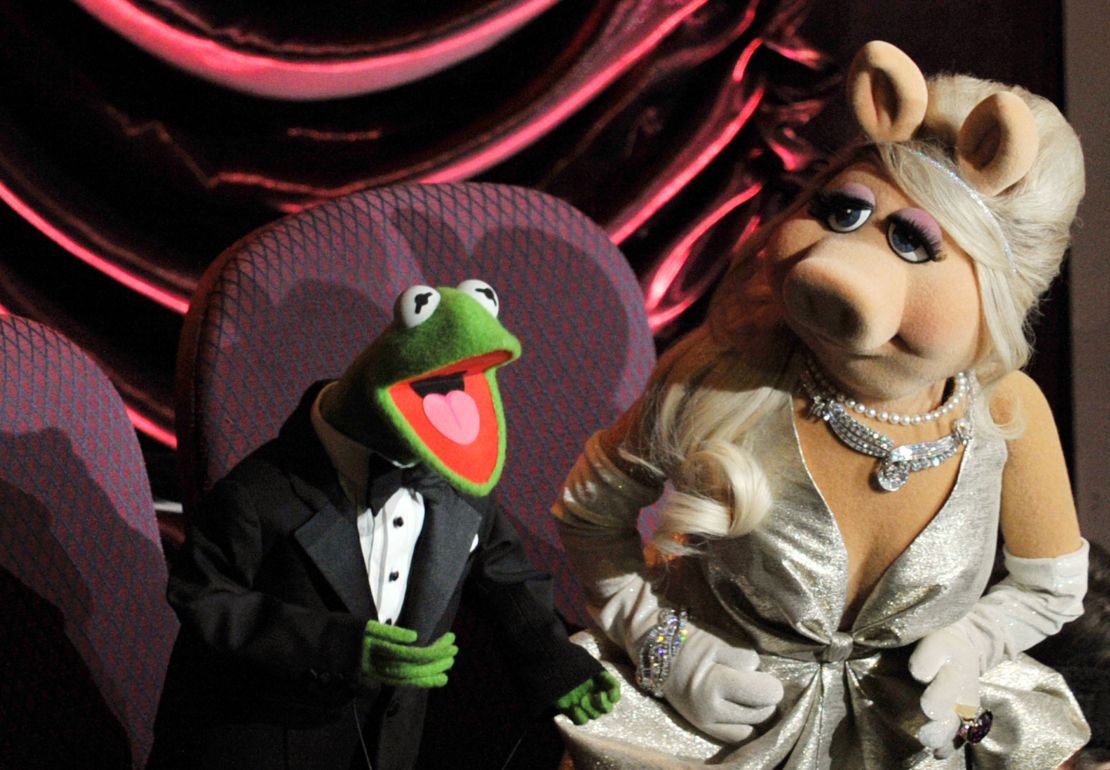
Take Hennes – as a kid, he fell hard for the rascally Ernie and naive Big Bird. But as he’s gotten older, he better appreciates the curmudgeons of the Muppet world, like Ernie’s stickler foil Bert, the dreadfully serious Sam the Eagle and eternal grouch Oscar. As he’s grown up with the Muppets, he’s found new wrinkles in their lore to explore on ToughPigs – and new characters to identify with.
Jennifer Garlen and Anissa Graham, academics who have edited and authored collections of essays analyzing various Muppet projects, said that part of what makes Kermit, Miss Piggy and co. so enchanting is their ability to speak to viewers young and old and affect them in different ways.
“Jim Henson always had his eye on narratives that could speak to people of all ages, not just children, and he never saw puppetry as merely children’s entertainment,” Garlen said in an email to CNN. “There are levels of social commentary, comedy, metaphysics, drama, and psychology in these stories that make them speak to a very broad audience; you’ll also see different things if you revisit them over many years.”
Graham, a senior lecturer in English at the University of North Alabama, said that as a kid, she picked up that the Muppets were speaking to both children and their parents and felt that style bridged a divide.
“It meant that somewhere along the line those two halves could connect,” she told CNN in an email.
That’s why it’s so easy to fall back in love with the Muppets after some time apart: Graham said Henson’s works “remind the grown-up audiences of the value of play and nonsense not as a by-product of nostalgia but as a part of their everyday lives.” If we can adopt the Muppets’ zany, whimsical streak ourselves, we might be better for it.
Nostalgia reels us back in
If there’s a Muppet moment that’s gone viral on your Twitter timeline in the last few years, chances are it resurfaced because of Gillespie. He runs Muppet History, accounts across social media platforms that share rare Muppets footage – Kermit’s reference-laden performance of the Talking Heads’ “Once in a Lifetime,” anyone? – and behind-the-scenes factoids on his favorite felt performers and their human creators. He collects moments with collaborators at ToughPigs, Muppet Wiki and friends who got lucky on eBay and uncovered reels with old Muppet clips.
“I just think the Muppets are something so timeless,” Gillespie said. “And I think the reason why is they’ve never tried to be timely. They’ve always been sort of irreverent.”
The Muppets may not be the timeliest comedians, but they’ve always got something to say. The critically acclaimed “Fraggle Rock” revival that debuts on Apple TV+ this month has an environmentalist bent. Big Bird, who is canonically 6 years old, received his vaccine as soon as kids his age were eligible. Last year, “Sesame Street” debuted its “ABCs of Racial Literacy” program, in which two Black Muppets discuss race and inclusion with Elmo (that’s in keeping with the origins of “Sesame Street,” which was created with young Black viewers in mind).
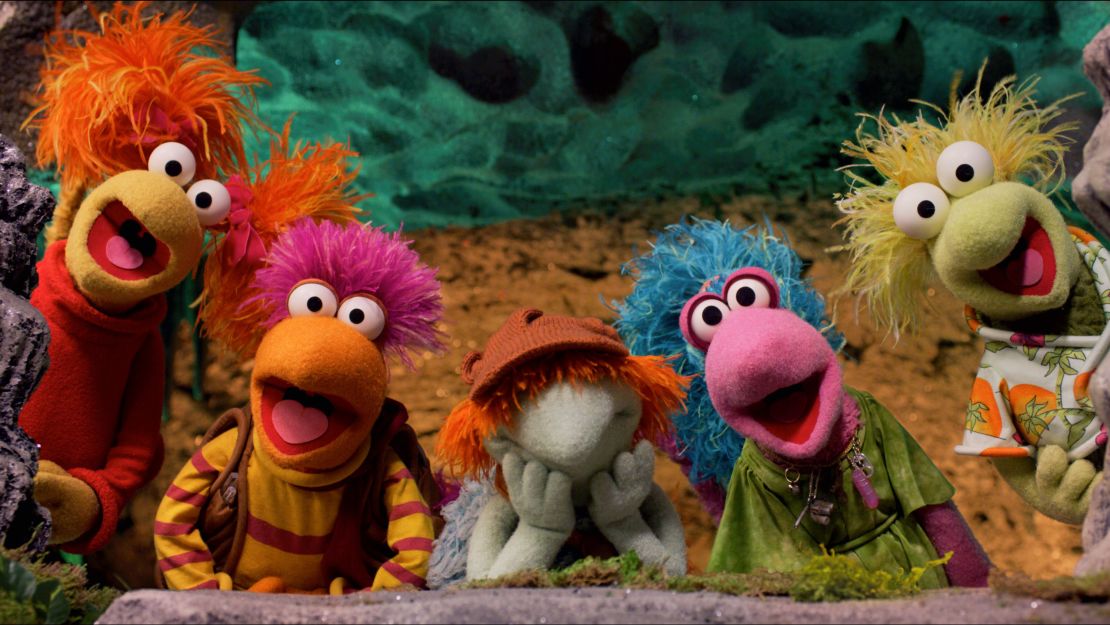
The Muppets’ progressivism can offend the occasional viewer, but it’s part of their staying power, too. While some bits haven’t aged well (a few episodes of “The Muppet Show” on Disney+ have a content warning), characters have rarely shied from difficult conversations about death, racism, health, homelessness and other topics kids wonder about but don’t always have the words to dictate.
As animated as the Muppets can be, they’re also mirrors for viewers to better understand themselves. Frankie Cordero, a puppeteer who plays Rudy on “Sesame Street” and Purple Panda on the PBS series “Donkey Hodie,” said he related to Gonzo, an oddball whose origins are probed in the film “Muppets from Space.” As a person of mixed Puerto Rican, Mexican and Spanish heritage, he often felt othered by his young peers, much like Gonzo is (though the Muppet finds a family with Kermit and the gang).
“This was an incredibly diverse group that would work to stick together as a team to defeat huge obstacles in their world,” Cordero said. The jokes grabbed his attention as a kid, but it’s the characterization that kept him as a fan – and helped him determine that he wanted to make a career in puppetry.
Henson’s characters are good at evolving to stay relevant, but they’re still themselves, forever the ages they were when they debuted. Cookie Monster will forever hunger for his favorite dessert, just like the Count will forever obsess over numbers, and Kermit will forever flail his gangly green arms when he’s excited, peeved or overwhelmed.
“The Muppets are always going to be the Muppets,” Hennes said. “They’ll always have that opportunity to surprise us with something new or bring back that feeling of joy.”
The Muppets teach us how to keep going
There’s an appropriate metaphor for the last two years of destruction and disorder in the finale of “The Muppet Movie.” The final minutes see Kermit and his newfound family of weirdos finally making the film of their dreams. The cast breaks into a reprise of “Rainbow Connection,” and just when things seem stable, if a bit stale, the set comes crashing down. Things explode, Gonzo’s hanging onto a balloon for dear life, and then, just when all seems lost, a real rainbow finds its way through a gaping hole in the studio roof. The Muppets bask in its glow while the pieces of their would-be film lay strewn around them.
“Life’s like a movie – write your own ending,” Kermit sings. “Keep believing, keep pretending, we’ve done just what we’ve set out to do.”
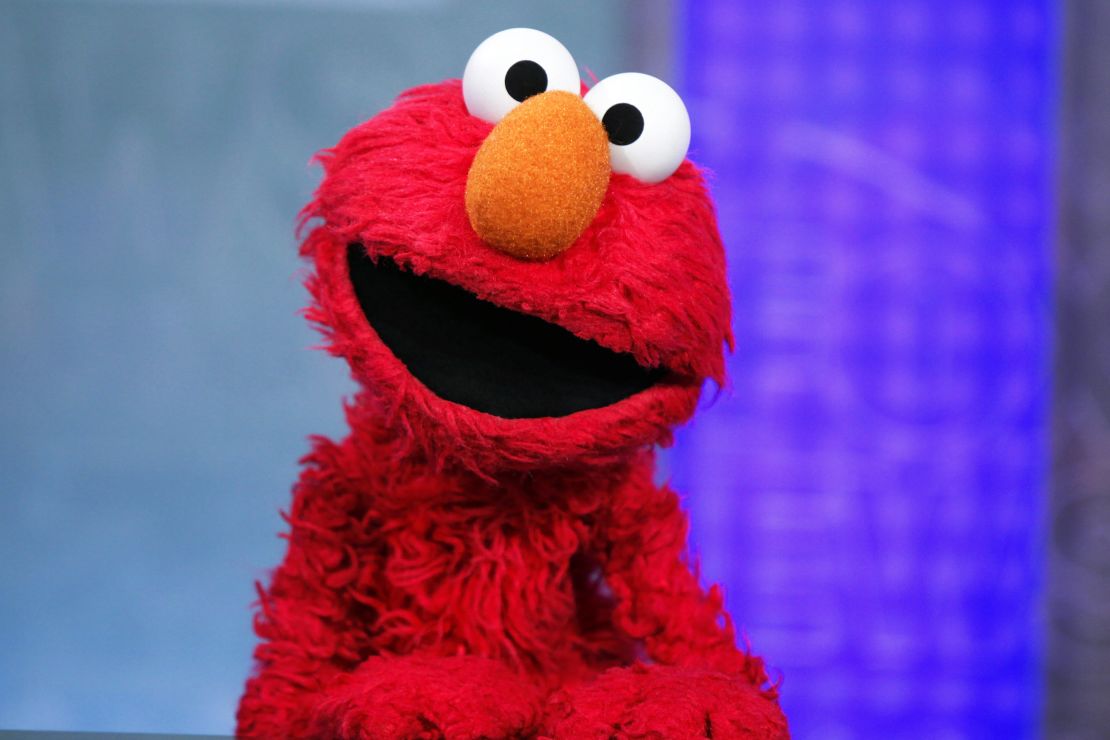
The Muppets cobbled together a film out of debris and chaos – one could say they thrive on chaos (that’s kind of Animal’s whole M.O.), or have at least found a way to work through it. Revisiting their funniest pratfalls or most touching musical numbers through older, hardened eyes returns to us “a bit of hope,” Gillespie said.
Elmo was Gillespie’s constant companion while he recovered from heart surgeries. Now, Elmo’s a hero among Gillespie’s peers once again for standing up against a pet rock who took the last oatmeal raisin cookie. And the cycle continues.
“Right now we need that comfort … that things are gonna be okay, because, well, Kermit the Frog says it’s gonna be okay, I think it’s gonna be okay then,” he said. “I think it’s gonna be all right.”
